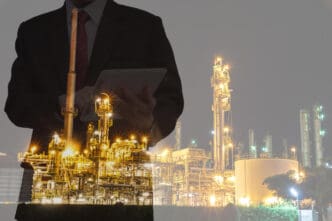KEY POINTS
- Vagit Alekperov is the co-founder and former long-time head of Lukoil, Russia’s largest private oil company, and has been named the wealthiest person in Russia as of 2024.
- Alekperov’s fortune, estimated at over $28 billion, is primarily tied to his ownership stake in Lukoil, a global energy giant he helped create from state-owned assets following the collapse of the Soviet Union.
- In 1991, Alekperov pioneered the concept of a vertically integrated oil company in Russia, merging three state-controlled enterprises to form LUKOIL, which combines production, refining, and distribution.
Vagit Alekperov, the co-founder and former long-time head of Russia’s largest private oil company, Lukoil, has reclaimed the title of the country’s wealthiest individual as of 2024. With a fortune estimated to be north of $28 billion, his wealth is a direct product of the tumultuous post-Soviet transition, where he leveraged his deep-seated experience in the USSR’s energy ministry to build a global energy giant from the remnants of state-owned assets. His story is a powerful illustration of how immense fortunes were forged in modern Russia and how they continue to navigate the volatile crosscurrents of global commodity markets and geopolitics.
Who is Vagit Alekperov?
Vagit Alekperov’s journey is a quintessential story of the Russian oligarch, blending Soviet-era technical expertise with post-Soviet capitalist ambition. His rise was not accidental but the result of a career spent entirely within the oil and gas sector, positioning him perfectly for the economic revolution that followed the USSR’s collapse.
From Caspian Oil Rigs to Soviet Ministry
Born in 1950 in Baku, Azerbaijan—then the heart of the Soviet oil industry—Alekperov was immersed in the world of energy from a young age. He began his career as a drilling operator on the Caspian Sea’s offshore rigs, learning the industry from the ground up. His talent and drive did not go unnoticed.
He steadily climbed the ranks of the Soviet bureaucracy, eventually moving to Western Siberia, the new frontier of Soviet oil production. By the late 1980s, his expertise had propelled him to Moscow, where he became the youngest-ever deputy minister of the Oil and Gas Industry of the Soviet Union. This position gave him a unique, top-down view of the nation’s vast energy assets just as the system that controlled them was beginning to crumble.
The Birth of Lukoil
As the Soviet Union dissolved in 1991, Russia’s new leadership initiated a wave of privatization. Alekperov, with his insider knowledge and ministerial authority, was uniquely positioned to act. He pioneered the concept of a vertically integrated oil company in Russia, a model common in the West but novel for the siloed Soviet system.
In 1991, he oversaw the merger of three major state-controlled oil production enterprises in the Siberian cities of Langepas, Uray, and Kogalym, adding the word “oil” to create the name LUKOIL. This move consolidated production, refining, and distribution under one corporate umbrella, creating an efficient and powerful new entity. Alekperov became its president and built it into a global force over the next three decades.
Understanding the Source of Wealth
Alekperov’s fortune is almost entirely tied to his substantial stake in Lukoil. Unlike some Russian billionaires whose wealth is spread across various sectors, his is a concentrated bet on the enduring global demand for fossil fuels and the resilience of his corporate creation.
What is Lukoil?
Lukoil stands apart from other Russian energy behemoths like the state-controlled Rosneft. It is Russia’s largest private oil company, a distinction that has shaped its corporate culture and international strategy. For years, it operated much like its Western counterparts, such as ExxonMobil or Shell, with international exploration projects, a global network of refineries, and gas stations across Europe and the United States.
The company’s primary business involves the exploration and production of crude oil and natural gas, with the majority of its reserves located in Russia, particularly Western Siberia. This raw production is then fed into its own refineries and sold as gasoline, diesel, and other petroleum products through its vast retail network. This integrated model allows Lukoil to capture value at every stage of the energy supply chain.
Navigating a Turbulent Landscape
The path for Russian billionaires has been anything but smooth. Alekperov has successfully steered Lukoil through multiple crises, from the 1998 Russian financial collapse to the 2008 global financial crisis and severe fluctuations in oil prices. However, the geopolitical shifts following 2014, and especially since 2022, have presented the most significant challenges.
In April 2022, after being personally sanctioned by the United Kingdom and Australia, Alekperov made a pivotal move. He stepped down as the CEO and a director of Lukoil, a position he had held for nearly 30 years. This strategic decision was widely seen as an attempt to shield the company itself from the direct impact of personal sanctions, allowing it to continue operating with fewer restrictions.
Despite these pressures and his formal departure from management, his wealth, tied to his ownership stake, has surged. This is partly due to a rebound in Russian stock market valuations and strong dividend payouts from Lukoil, which has benefited from high energy prices and a reorientation of its business toward domestic and non-Western markets.
The Oligarch’s Playbook: Beyond Oil
Like many of his peers, Alekperov’s vast wealth has afforded him a lifestyle far removed from his humble beginnings. While his focus remains on energy, his activities extend into philanthropy and the acquisition of luxury assets that serve as symbols of his status.
Philanthropy and Social Investment
Alekperov is known for his significant philanthropic endeavors, primarily through his “Our Future” foundation (Nashe Budushcheye). Established in 2007, the foundation is one of Russia’s first major private funds dedicated to promoting “social entrepreneurship.” It provides support and funding for businesses that aim to solve social problems, from employing people with disabilities to providing educational services.
This focus on social enterprise offers a different dimension to the typical image of a Russian oligarch, reflecting a desire to build a lasting legacy beyond corporate balance sheets. He has also personally funded museums and cultural restoration projects.
The Symbols of Wealth
The immense scale of Alekperov’s fortune is perhaps best understood through his high-profile assets. He has been the owner of several superyachts, including the renowned 70-meter “Galactica Super Nova,” known for its speed and luxurious amenities. These floating palaces, along with private jets and sprawling real estate holdings, are standard features in the portfolios of the global ultra-rich.
These assets, however, have also become liabilities in the current geopolitical climate. Many yachts and properties owned by sanctioned Russian billionaires have been frozen or seized by Western authorities, illustrating the tangible risks associated with their wealth.
Russia’s Billionaire Landscape
Vagit Alekperov’s position at the top of Russia’s wealth list is not guaranteed. The ranking is notoriously volatile, heavily influenced by commodity prices, currency fluctuations, and political winds blowing from the Kremlin and Western capitals.
A Constantly Shifting Roster
For years, Alekperov has vied for the top spot with other titans of Russian industry. These include Vladimir Potanin, whose fortune is derived from his stake in Norilsk Nickel, the world’s largest producer of palladium and high-grade nickel. Another perennial contender is Leonid Mikhelson, whose wealth is tied to Novatek, a major producer of natural gas.
The fact that the top three spots are consistently occupied by individuals from the oil, gas, and metals sectors underscores a fundamental truth about the Russian economy: its wealth is overwhelmingly dependent on the extraction and export of natural resources. When commodity prices are high, their fortunes soar; when prices fall, their net worth can plummet dramatically.
The Overarching Impact of Sanctions
The comprehensive sanctions imposed by the West have fundamentally reshaped the landscape for Russia’s elite. While some billionaires with heavy exposure to Western markets and finance have seen their fortunes decimated, others with domestically focused or commodity-based assets have proven surprisingly resilient.
Alekperov’s recent ascent in the rankings is a case in point. As the Russian economy insulates itself and focuses on non-Western trade partners, companies like Lukoil, which produce a globally essential commodity, have found new markets. This dynamic has created a new set of winners and losers within Russia’s billionaire class, rewarding those whose empires are most aligned with the country’s new economic reality.
In conclusion, Vagit Alekperov’s story is a microcosm of Russia’s post-Soviet economic history. His journey from a Soviet oil engineer to a multi-billionaire tycoon was made possible by a unique combination of industry knowledge, political connections, and bold timing. His continued status as Russia’s richest person, even after stepping away from the helm of his company amid unprecedented sanctions, speaks to the enduring power of Russia’s energy resources and the remarkable, if precarious, resilience of the fortunes built upon them.








